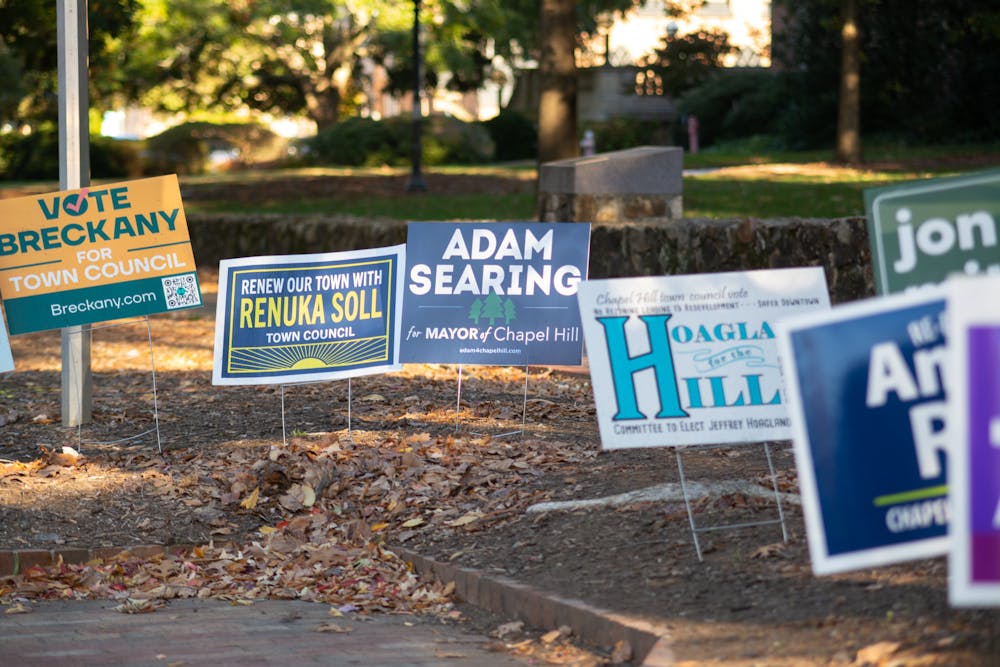Public Policy Polling, a polling firm based in Raleigh, recently released a predictive poll on the Chapel Hill 2023 municipal elections to reflect potential election outcomes and other issues in the community.
Thirty percent of people in the Chapel Hill survey reported they would vote for Jess Anderson, and 29 percent reported they would vote for Adam Searing if the mayoral election was that day. Forty percent of those surveyed were unsure about how they will vote.
At least 57 percent of those surveyed were undecided on voting for each town council candidate. Tom Jensen, the director of PPP, said having a large number of undecided voters could impact the overall accuracy of the poll.
Eight out of the 10 town council candidates have between a 16-23 percent approval rate. Jensen said that because the margin of error for the poll is about five percent, the top eight candidates are essentially tied.
According to its website, PPP measures public opinion while focusing on affordability and efficiency in its data collection process. The organization conducts most of its polling by phone and over text, with options for online surveys and live calls via cell phone.
PPP also works to ensure more accurate results by using voter registration databases to create its survey samples, with the intention of polling only those who will likely cast ballots.
“A lot of people who vote in Chapel Hill elections are in their 80s and may not have ever sort of taken up texting as something that they did to communicate,” Jensen said. “So we just make sure that those people who are still in the electorate, that we still have a way to reach them.”
Local public polling can also be inaccurate due to the small number of participants who complete the surveys, Alexander Sahn, an assistant political science professor at UNC, said.
"Compared to, let's say, kind of a national poll, the presidential race, it's a lot harder to execute at the local level," he said. "And that's because just very few people respond to these surveys."



